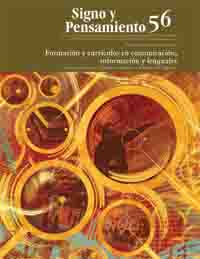Abstract
In this interview, Professor Edgar Morin presents new topics for debate, as well as a number of reflections and concerns about what university education in the 20th century means. There is deep concern about the need to put an end to the university model of the 19th century, which favors the fragmentation of knowledge and disciplines, from academic and administrative structures that deny integration, complexity, and interdisciplinarity of contemporary knowledge. Morin insists that today’s university must focus on educating “planetary citizens” who are able to think about and interact with new problems and epistemologies of our current society. He also insists that universities should educate for life, for the making of sense, for passion and for changing the world. This implies education in three analytic and transversal dimensions: a) New universal/local problems; b) New epistemologies produced and provided by contemporary society; and c) the “civilizing knowledge” that constitutes modern, planetary, integrated and complex societies.
This journal is registered under a Creative Commons Attribution 4.0 International Public License. Thus, this work may be reproduced, distributed, and publicly shared in digital format, as long as the names of the authors and Pontificia Universidad Javeriana are acknowledged. Others are allowed to quote, adapt, transform, auto-archive, republish, and create based on this material, for any purpose (even commercial ones), provided the authorship is duly acknowledged, a link to the original work is provided, and it is specified if changes have been made. Pontificia Universidad Javeriana does not hold the rights of published works and the authors are solely responsible for the contents of their works; they keep the moral, intellectual, privacy, and publicity rights.
Approving the intervention of the work (review, copy-editing, translation, layout) and the following outreach, are granted through an use license and not through an assignment of rights. This means the journal and Pontificia Universidad Javeriana cannot be held responsible for any ethical malpractice by the authors. As a consequence of the protection granted by the use license, the journal is not required to publish recantations or modify information already published, unless the errata stems from the editorial management process. Publishing contents in this journal does not generate royalties for contributors.


